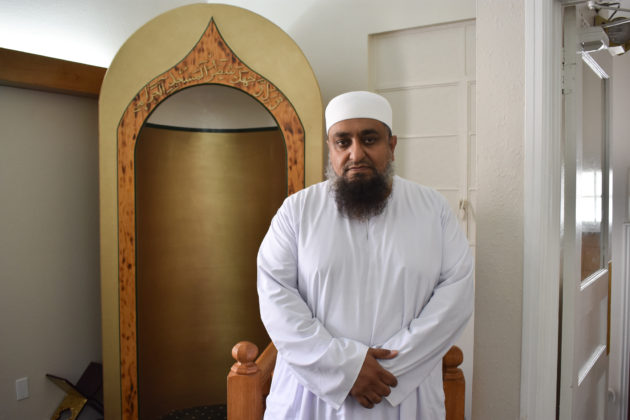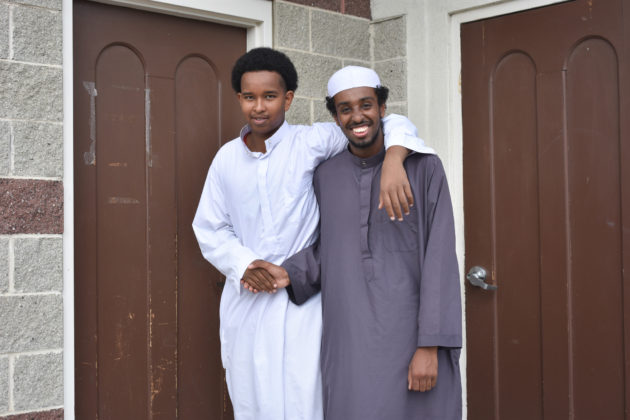See also “Social media support for religious youth and young adults“
There was a point in his life when Zaki Mohamed questioned the truthfulness of his Muslim faith. Yearning to settle his uneasiness, the 21-year-old University of Utah student explored other religions and tried adopting new beliefs. It was through this soul-searching experience that he came to value his religious upbringing in the teachings of Islam.
“My faith is extremely important, especially when it comes to school and my struggles in life. The biggest thing I can always turn to is my religion and faith,” Mohamed said.
Mohamed has undertaken the process of exploring various faiths, and he is not alone in his generation. One of the main factors leading millennials to go on these “spiritual journeys” is their exposure to the influx of faith-based beliefs, ideas and practices found on social media — a platform that some argue is now shaping the religious landscape of the United States and other parts of the world.
While research indicates that the millennial generation is “less religious” than previous generations, individuals like Mohamed are proof that there are still young people who consider themselves “devout” believers of a singular religion.
The religious decline of millennials
In a study conducted by the University of Notre Dame, researchers attempted to explore whether social networking sites have an effect on young adults’ religious patterns and thought processes.
The constant uploading and sharing of information through social networking sites exposes young adults to a plethora of beliefs, ideas and practices. The research findings indicate that those who abstain from social media have a higher chance of attending regular church services. At the same time, those who report being active on social media attend regular church services less.
“There are so many ideas out there. If someone isn’t grounded or doesn’t know exactly who they are, it’s hard,” Mohamed said. “In this day and age, we’re fed way more ideas and information than any other generation before us. Is what you see on the media true? Is it biased? Unbiased? Who knows.”
According to the same study, another factor that potentially contributes to the increasingly non-religious nature of young adults is the fear of judgement and criticism. In an era where social issues like gender equality, same-sex marriage, abortion and more are generally defended by strong opinions, young adults may fear committing to a single religion because they don’t want to be viewed as intolerant or narrow-minded. Some young adults have adopted an open mindset by becoming “spiritual tinkerers,” or individuals who take parts of various religions to customize their ideal sense of spirituality.
Mikhail Ahmed was raised by Somalian parents in a conservative Muslim household. Although the University of Utah student considers himself to be a devout Muslim, he said he is aware of the fear some young adults face when committing themselves to one belief.
“Throughout history, we’ve seen how oppressive religion could be. People have been questioning what religion has done for them, that it’s man-made and doubtful. They don’t want their life to be bound by what they see as a set of rules and restrictions,” Ahmed said.
Despite research indicating the decline of religious devotion among millennials, there are those who continue to stand firm in their faith as they strive to maintain their religious beliefs and practices.
Maintaining the faith of millennials
Junee Castro has served as the director of Youth and Young Adult Ministry for the Roman Catholic Diocese in Salt Lake City for three years. She oversees 48 parishes in Utah including 23 youth groups and three young adult ministries. The diocese keeps its millennials active through various programs and activities including rallies, youth congress, opportunities for confession and reconciliation, field days, worship, adoration services and young adult retreats. Castro said she has seen a different reality from the research suggesting millennials are less religious.
“The youth and young adults are willing to help, to volunteer and support, and be engaged. They aren’t afraid to share their faith experience with their peers,” Castro said. “Being involved in our activities helps us continue to grow in the faith, in what we believe and what we stand for.”
Imam Yasir is a spiritual leader for the Islamic Society of Greater Salt Lake. The organization he oversees works to serve the youth and young adults in the Muslim community. Every week, they hold a Sunday school for boys and girls of all ages, giving them the chance to study religious texts and become well-versed in Islamic doctrine. An important part of their teachings involves focusing outward and developing the skills to better serve the community. During the week of Ramadan, they gather each night’s leftover meals and take them to the homeless shelter.
“These weekly programs help these young people make sense of their surroundings and become better civic leaders in their own regard. It also helps them to find meaning and address challenges they may be facing in their daily life,” Yasir said.
Strengthening religious youth and young adults is also a priority for the leaders of the First Baptist Church of Provo. Pastor James Thompson shared that a lot of emphasis is placed on reinforcing the home structure and encouraging families to be engaged in maintaining faith commitments in the household.
“The main vehicle is through the home. We gear towards preparing the parents to continue the areas of study and spiritual growth within the home,” Thompson said.
The principles of home-centered learning taught in the First Baptist Church of Provo can help young people find commonality with other religions. It was in the home that Ahmed first learned about God.
“As a Muslim, it’s having this idea of placing God before anything else. Something you just ask yourself is, ‘What’s worth more? God or this?’” Ahmed said. “It’s this whole idea that God is watching over you, that he’s always hearing, aware and well-acquainted with what’s going on in your life.”
As Ahmed looks toward the future, he said his hope is that Islam becomes more developed in the community and that the stereotypes painting Muslims as violent extremists fade away.
“I hope people will start to believe we’re good people by nature. We belong here, and we have just as much of a right being Muslim and American (as other citizens),” Ahmed said.
It’s this hope and vision for the future that keeps Ahmed strong in his faith and unites him with other young believers to make up the rising generation of faith holders.









